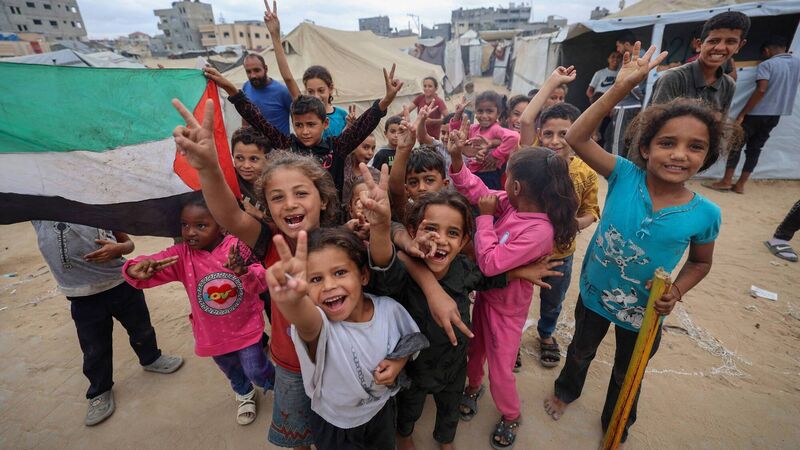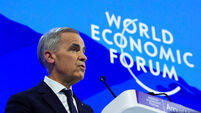Colin Sheridan: The one word missing from all this so-called talk of peace in Gaza is 'Palestinian'

Palestinian children celebrate at a camp for displaced people in Nuseirat in the central Gaza Strip on Thursday, following news of a new Gaza ceasefire deal. Picture: Eyad BABA / AFP via Getty Images
As someone — a non-Palestinian someone — who has written thousands upon thousands of words about the ongoing genocide in Gaza, today seems an odd time to suddenly fall silent.
Because today is the closest we've come to “peace” after two years of the worst inhumanity man has shown to his fellow man.
















